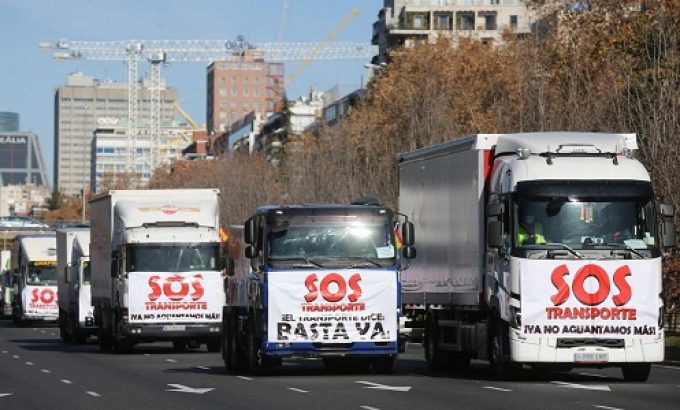BMW supply chain under threat after US investigates forced labour claims
A US Senate probe has uncovered likely forced labour in the supply chains of Chinese-made ...

A Spanish government offer of €500m of direct aid to the road haulage sector has failed to end a two-week driver strike sparked by spiralling fuel costs, which has hit production and manufacturing.
From 1 April, the financial package, which focuses on a reduction in the so-called ’professional diesel’ tax, was announced this week by Spain’s transport minister, Raquel Sánchez, following a meeting with the country’s National Committee for Road Transport, said to represent 85% of the companies in the sector.
It ...
Asia-USEC shippers to lose 42% capacity in a surge of blanked sailings
USTR fees will lead to 'complete destabilisation' of container shipping alliances
Outlook for container shipping 'more uncertain now than at the onset of Covid'
New USTR port fees threaten shipping and global supply chains, says Cosco
Transpac container service closures mount
DHL Express suspends non-de minimis B2C parcels to US consumers
Zim ordered to pay Samsung $3.7m for 'wrongful' D&D charges
Flexport lawsuit an 'undifferentiated mass of gibberish', claims Freightmate


Comment on this article